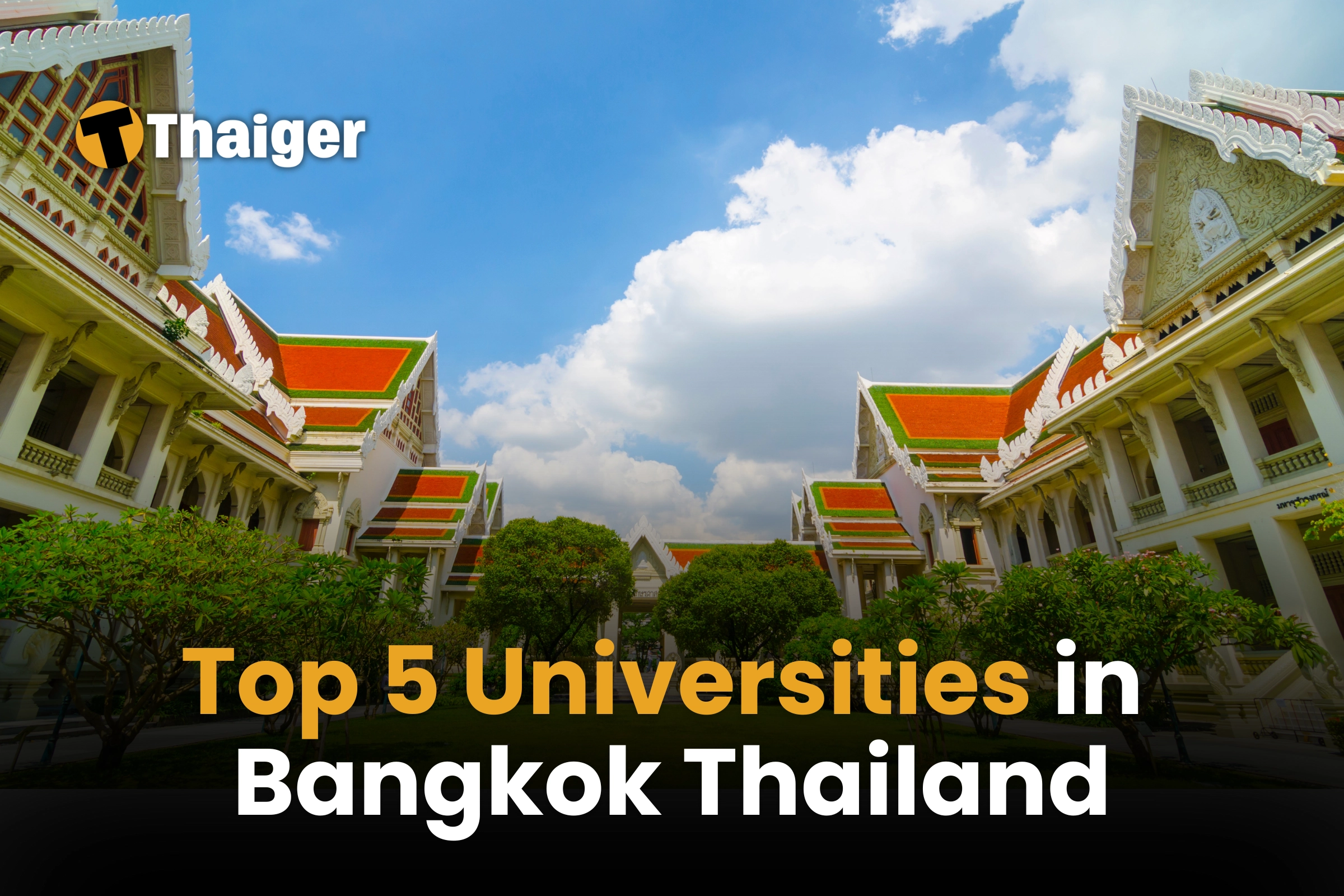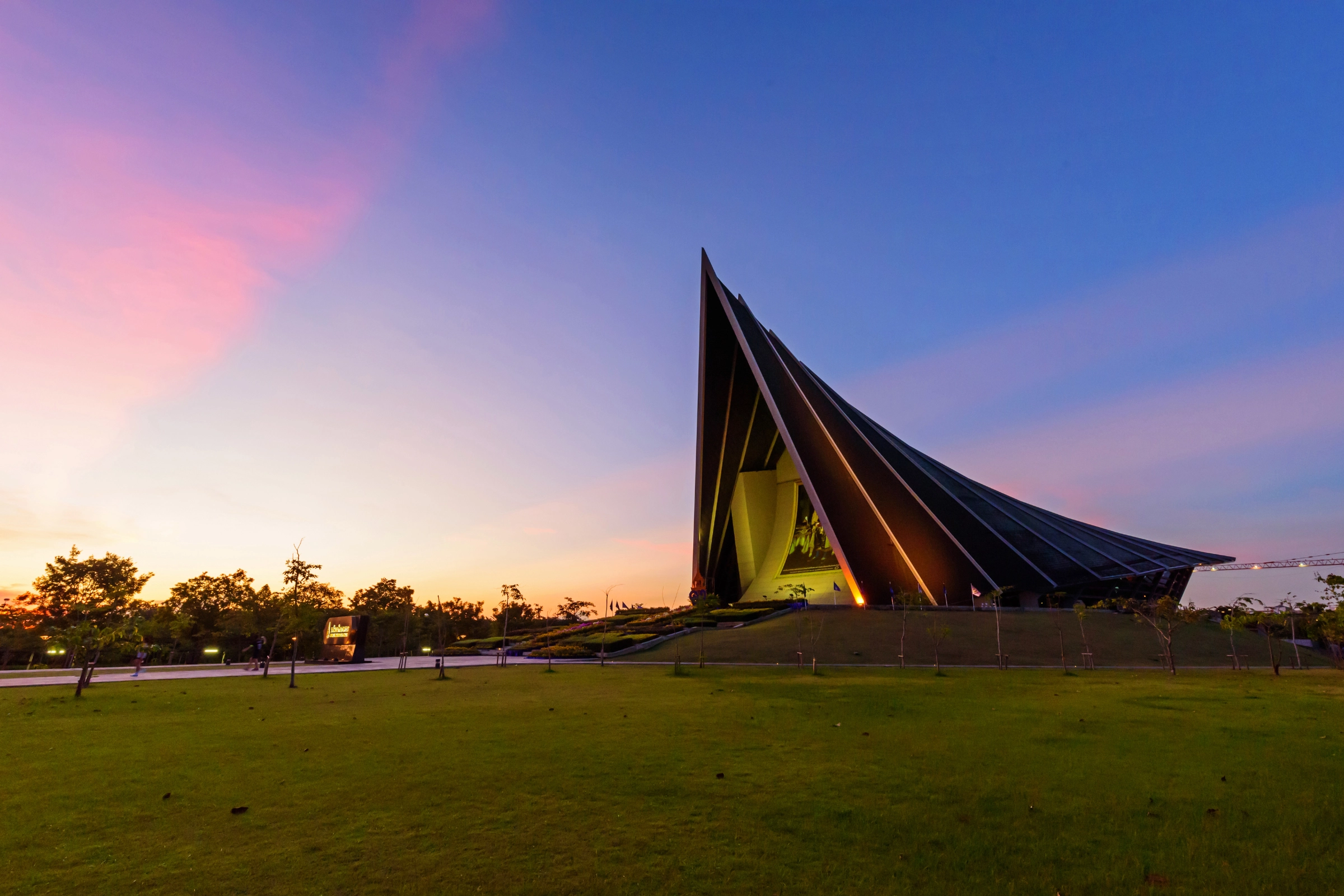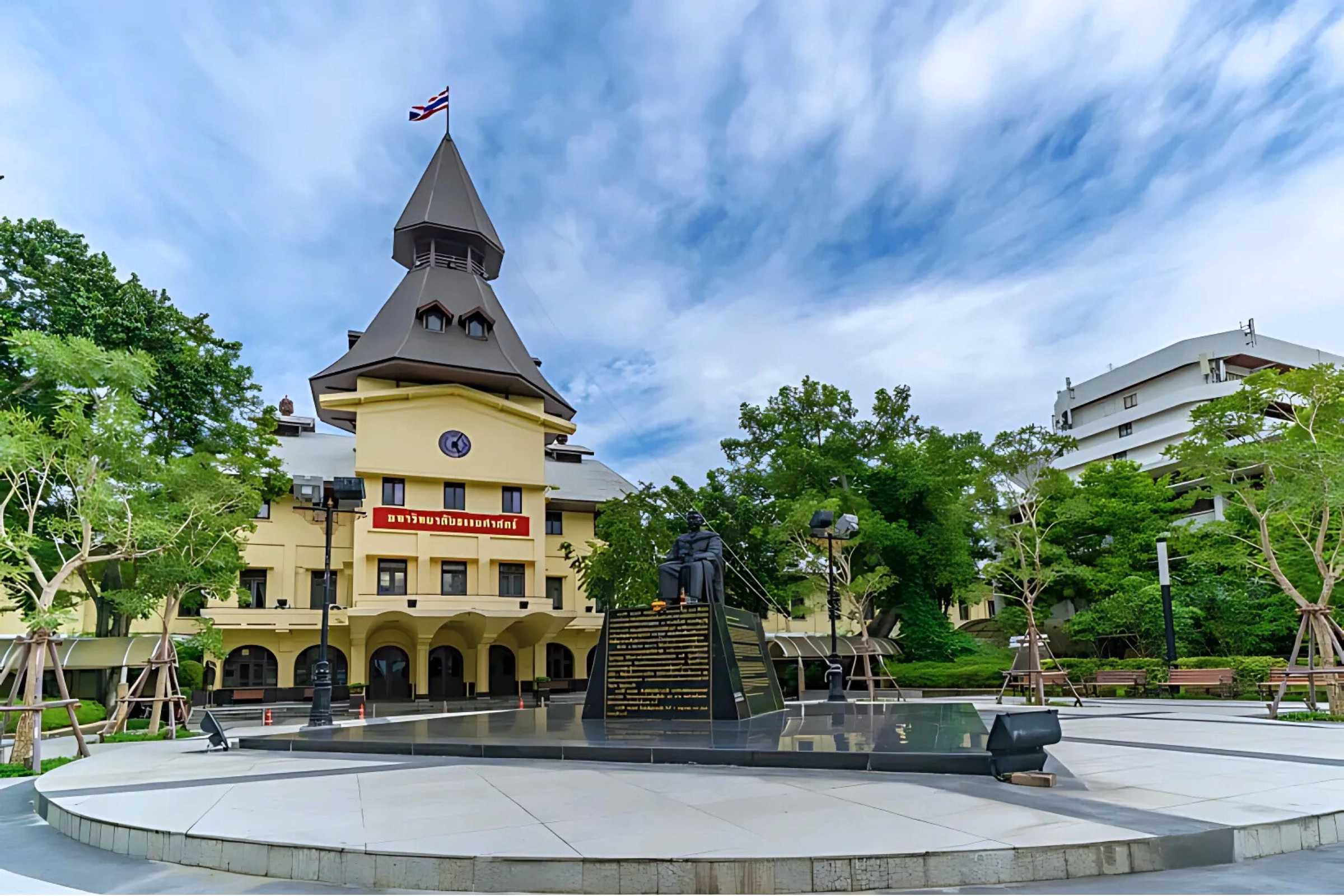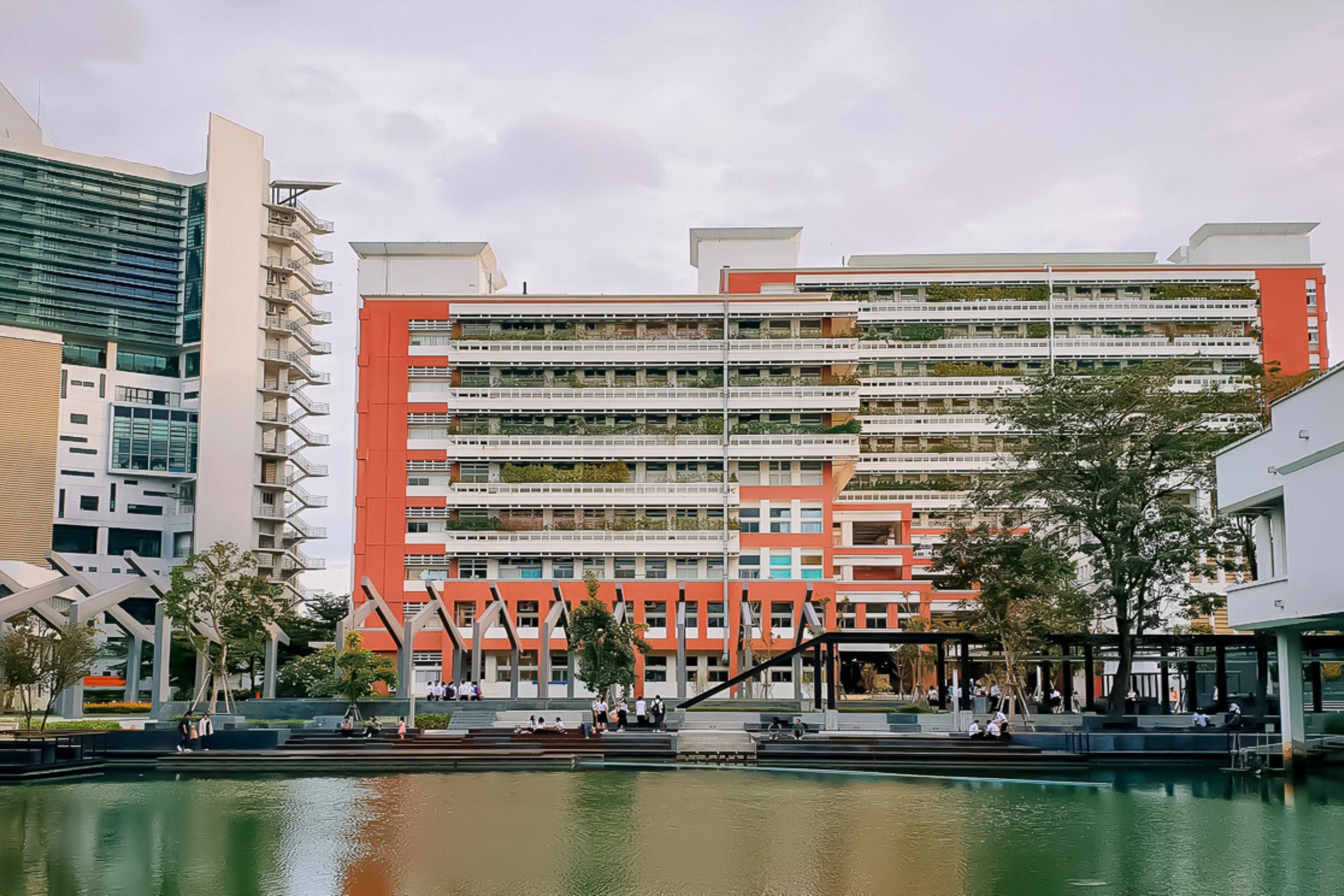Top 5 universities in Bangkok, Thailand

Thailand has become a strong choice for higher education in Southeast Asia, with Bangkok home to some of the country’s most respected universities. These universities aren’t just popular locally, they have strong reputations in the region and attract students from all over. So, if you’re considering a bachelor’s degree in Thailand, here’s a look at five top universities in Bangkok to help you weigh your options. (Based on the QS University Rankings)
Top 5 universities in Bangkok
These are the top 5 universities in Bangkok whose position in the listing is based on their QS University Rankings. |
1. Chulalongkorn University
Established in 1917, Chulalongkorn University is Thailand’s oldest and one of its most prestigious institutions. It consistently ranks among the top universities in Asia and is known for its strong emphasis on research and academic excellence. The university offers a wide range of undergraduate programmes in fields such as engineering, business, medicine, and social sciences.

Address: 254 Phaya Thai Rd, Wang Mai, Pathum Wan, Bangkok 10330
What it’s known for
As Thailand’s oldest and one of its most prestigious universities, Chulalongkorn (often called ‘Chula’) is well-regarded for its research programmes, strong academic standards, and ties with global institutions. It consistently ranks as the top university in Thailand, often landing within the top 250 universities globally (211th on QS World University Rankings 2024).
Popular programmes for expats
Chula offers a range of English-taught programs at the undergraduate level, especially in fields like business administration, economics, and international relations. The university’s Bachelor of Arts in Communication Management (B.A.C.M.) is a popular choice among expats, focusing on communication studies within an international context.
Admission requirements
Chulalongkorn has a relatively selective admission process. International students generally need a high school diploma equivalent to the Thai high school system, along with English proficiency scores (IELTS or TOEFL) and sometimes an entrance exam for specific programmes. A personal statement or recommendation letters may also be required for competitive programmes.
Can you transfer credits?
Chula generally accepts credit transfers from accredited universities, particularly those with formal partnerships. If you have studied at an accredited institution abroad, you may be eligible to transfer some of your completed credits, though it’s best to check with your specific department for their policies.
| Pros | Cons | |
| ✅ Prestigious reputation ✅ Diverse programmes ✅ Strong research focus | ❌ Selective admissions ❌ City campus challenges ❌ Higher living costs |
2. Mahidol University
Mahidol University, founded in 1888, is recognised as one of Thailand’s leading research universities. While the main campus is located in the quiet Salaya area of Nakhon Pathom Province, some of Mahidol’s most reputable faculties such as the Faculty of Medicine, Faculty of Dentistry, and Faculty of Science are situated near Victory Monument in central Bangkok. This dual-campus setup makes it convenient for students in health sciences and related fields to access hospitals and other facilities for clinical training.

Address: 6 Yothi Rd, Thung Phaya Thai, Ratchathewi, Bangkok 10400 (Faculty of Dentistry)
What it’s known for
Mahidol University is celebrated for its medical and health science programmes and ranks highly within Asia, especially in these fields. It has a strong research focus, particularly in medical sciences, public health, and environmental studies. It’s a go-to choice for students interested in pursuing a career in healthcare or life sciences.
Popular programmes for expats
For English-speaking students, Mahidol offers international undergraduate programmes such as Biomedical Science, Tourism and Hospitality Management, and International Business. The university’s Bachelor of Science in Biomedical Science is a popular choice, with connections to hospitals for clinical training.
Admission requirements
For international students, Mahidol typically requires proof of English proficiency (IELTS or TOEFL), a high school diploma equivalent to the Thai M.6 standard, and in some cases, standardised test scores like SAT or ACT. Some programmes, especially in health sciences, have additional entrance exams or interview rounds.
Can you transfer credits?
Mahidol University has flexible credit transfer options for students from accredited institutions, but requirements vary by faculty. Students are advised to contact their department directly for details, as transfer policies differ depending on the course.
| Pros | Cons | |
| ✅ Leading in health sciences ✅ Strong research opportunities ✅ Various international programmes | ❌ Dual-campus setup ❌ High admission standards ❌ Limited campus life activities |
3. Thammasat University
Established in 1934, Thammasat University has two main campuses: Rangsit, located on the outskirts of Bangkok, and Tha Prachan, situated in the city’s historic area. Most standard bachelor’s degree programmes are held at the Rangsit campus, while Tha Prachan hosts a variety of international programmes. This setup allows international students to study in central Bangkok while local undergraduate programmes benefit from the larger facilities and resources available at Rangsit.

Address: 2 Phra Chan Alley, Phra Borom Maha Ratchawang, Phra Nakhon, Bangkok 10200
What it’s known for
Known as a hub for political science, law, and social sciences, Thammasat has a long history of promoting democracy and social responsibility. It’s popular with students interested in international relations, political studies, and Southeast Asian studies.
Popular programmes for expats
Thammasat offers several English-taught programmes, including Bachelor of Business Administration (BBA) and Bachelor of Political Science in Politics and International Relations (BMIR), both of which are well-regarded and attract international students.
Admission requirements
Requirements for international students typically include proof of a high school diploma (or equivalent), English proficiency scores, and sometimes a program-specific entrance exam. Some programmes also require recommendation letters, a personal statement, or an interview.
Can you transfer credits?
Thammasat accepts credit transfers from recognised institutions, especially if you’ve studied in programmes with similar curricula. While it’s open to transfer credits, it’s best to consult with your desired department about any specific prerequisites or limitations.
| Pros | Cons | |
| ✅ Focus on social sciences ✅ Cultural hub in Bangkok ✅ Flexible credit transfers | ❌ Campus split issues ❌ Variable program quality ❌ Complex admissions process |
4. Kasetsart University
Kasetsart University was established in 1943 primarily as an agricultural institution but has since expanded into various fields including engineering, business administration, and social sciences. It is one of the largest universities in Thailand.

Address: 50 Ngamwongwan Rd, Lat Yao, Chatuchak, Bangkok 10900
What it’s known for
Originally founded as an agricultural college, Kasetsart University (KU) is one of Thailand’s leading research universities, particularly in agriculture, environmental science, and veterinary medicine. However, KU has since diversified, excelling in fields like engineering, economics, and business.
Popular programmes for expats
For international students, the Bachelor of Business Administration (International Program) and the Bachelor of Science in Environmental Science are popular choices. KU also offers strong programs in engineering, which include practical training and internships with industry partners.
Admission requirements
Kasetsart’s requirements for international students vary by programme but usually include proof of secondary education equivalent to the Thai system, English proficiency scores, and sometimes additional standardised tests or interviews. As KU is known for hands-on learning, some programmes may also require a portfolio or demonstration of skills.
Can you transfer credits?
Kasetsart is open to credit transfers for students from recognised institutions, especially if the courses align closely with KU’s curriculum. You’ll need to discuss this with the programme faculty, as each department has its own policies for accepting credits.
| Pros | Cons | |
| ✅ Strong agricultural focus ✅ Hands-on learning opportunities ✅ Large student community | ❌ Perception as an ag school ❌ Varying programme recognition ❌ Campus location challenges |
5. King Mongkut’s University of Technology Thonburi (KMUTT)
KMUTT was established in 1960 and specialises in engineering and technology programmes. It has gained recognition for its innovative approach to education and research.

Address: 126 Pracha Uthit Rd, Bang Mot, Thung Khru, Bangkok 10140
What it’s known for
KMUTT is a top engineering and technology university, known for its focus on innovation, technical skills, and partnerships with industry. It ranks among the best technical universities in Thailand and is highly regarded for programmes in engineering, architecture, and industrial technology.
Popular programmes for expats
KMUTT offers several English-taught programmes, especially in engineering disciplines like Chemical Engineering, Mechanical Engineering, and Computer Science. The university’s design-focused Bachelor of Architecture (International Programme) is also gaining popularity among international students.
Admission requirements
Generally, KMUTT requires international students to provide proof of a high school diploma or equivalent, English proficiency scores, and sometimes SAT or ACT scores for specific programmes. Additional exams or interviews may be required for highly competitive engineering or architecture programmes.
Can you transfer credits?
KMUTT is open to transferring credits from other accredited institutions, especially for courses that have similar content. Transfer students should contact their specific department to discuss eligible credits and meet any department-specific requirements.
| Pros | Cons | |
| ✅ Innovative engineering programmes ✅ Research-driven environment ✅ Internationally recognised programmes | ❌ Specialisation limitations ❌ Competitive admission criteria ❌ Campus area limitations |
Choosing the right university in Bangkok will depend on your academic interests, career goals, and the type of student life you’re looking for. Each of these institutions has a unique focus, from Chulalongkorn’s social sciences to KMUTT’s technical expertise.
With flexible international programmes, these universities welcome expats who want to immerse themselves in a new culture while gaining a world-class education. Remember to check each university’s admission deadlines and specific programme requirements, as they may vary yearly.
FAQs about universities in Thailand
What universities in Bangkok offer international programs?
Several universities in Bangkok provide international programs, including Chulalongkorn University, Thammasat University, and Bangkok University. These programs cater to a diverse student body and often feature courses taught in English.
What are the typical admission requirements for international students?
International students usually need to submit academic transcripts, proof of English proficiency (such as TOEFL or IELTS scores), a valid passport, and sometimes letters of recommendation. Specific requirements can vary by institution and program.
Is it necessary to speak Thai to study at a university in Bangkok?
While many programs are offered in English, knowing some Thai can enhance the experience and help with daily life in Bangkok. However, it is not a strict requirement for English-taught programs.
What is the cost of studying at universities in Bangkok?
Tuition fees can vary widely depending on the university and program. Typically, undergraduate programs range from 30,000 to 100,000 THB per semester (approximately $900 to $3,000 USD). Additional costs include living expenses, materials, and health insurance.
Are scholarships available for international students?
Yes, many universities offer scholarships specifically for international students based on academic merit or financial need. Prospective students should check individual university websites for available opportunities.
What types of courses are popular among international students?
Popular fields of study include business administration, engineering, computer science, tourism and hospitality management, and arts. These areas often align with global job market demands.
Other resources on Thai universities
- How affordable are universities in Thailand?
- Public vs private: Deciding on Thailand’s universities
- Top popular degree programmes at Thai Universities
Latest Thailand News
Follow The Thaiger on Google News:


























